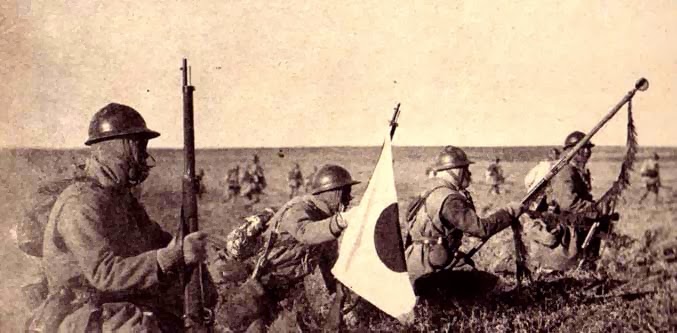It’s not often enough that one learns new military history
from a book review. The October 2013
American Historical Review presents a review of Clash of Empires in South
China: The Allied Nations’ Proxy War with Japan, 1935-1941 by Franco David
Macri which does just that.
The book looks at WWII from an Asian perspective
whereby World War II begins with the Japanese invasion of Manchuria in
September 1931. Japan ultimately wanted China and a much expanded role in East Asia and eventually
the world. While China under
Nationalist leader Chiang Kai-shek was under threat of Japanese invasion, both the Soviet Union and Britain felt the pressure of this Japanese advance as well. The Soviet Union felt a threat to its East
Asia holdings and Britain was worried for its Asian colonies and nearby
Commonwealth powers.
The author discusses the various diplomatic wrangling
conducted between Japan, the Soviet Union, Britain, the US, Canada and
others. He points out that the British
colony of Hong Kong was particularly troublesome for Japan since Hong
Kong was the main entry point of weapons bought by Chiang Kai-shek. Britain was not selling the weapons but
allowed its colony to act as a conduit for them. Japan was overly aggressive in its talks with the other nations,
becoming more and more anxious as its war against China was stalemated. British officials
were overly confident that Japan would not be tempted to attack British
interests directly. The Chinese, though
militarily weak, successfully manipulated the other
powers opposing Japan to maintain the stalemate. China even offered to sell Hong Kong and other territories to Britain
but Britain found the price to be too steep.
Also interesting is that it was in this period that Canada
moved farther from the British sphere of influence and more under the American
sphere of influence. Though the
reviewer does not agree with all of the author’s conclusions about the war, the
book is strongly recommended for its analysis of the Sino-Japanese conflict in the 1930s.
Other reviewers have strongly endorsed this book as an important history
of China and the war there before 1941.
I strongly recommend this book to anyone wanting a more nuanced history
of WWII, with the diplomacy that was involved, or someone interested in
military history during the 1930s.

No comments:
Post a Comment